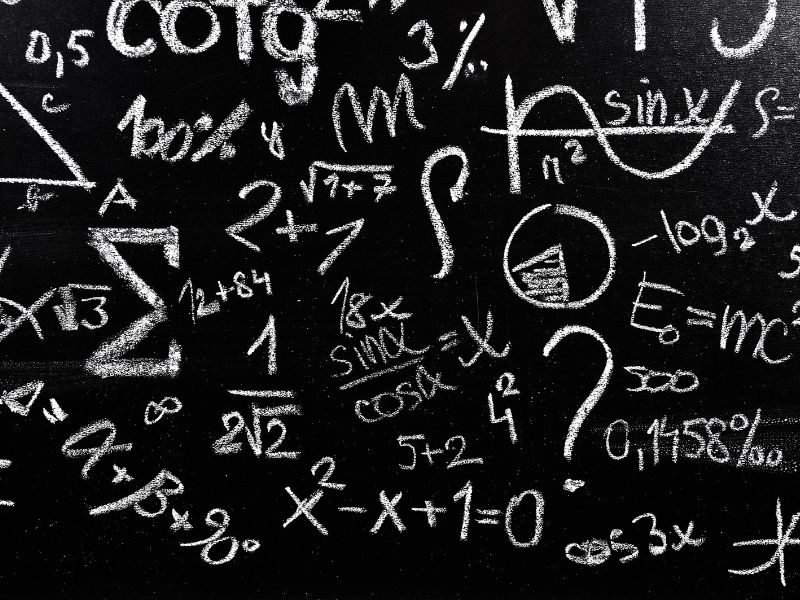
The Importance of Mental Math in the SAT
Why does mental math matter on the SAT? It's simple. In the 30 years we've been helping students with SAT Tutoring, we're constantly reminding them that the No Calculator section tests your ability to perform calculations quickly and accurately without a calculator - this is where your mental math prowess comes into play. It lets you speed through calculations, leaving more time for complex problems. Plus, it sharpens your accuracy, reducing the chances of making errors in haste. Picture an athlete training for a marathon - they need to build stamina for the long run, and mental math is your academic stamina.
Basic Mental Math Techniques
The first step towards mastering mental math is understanding the basics. It's like learning to play scales on a piano before diving into complex compositions. So, what are these foundational techniques?
Addition and Subtraction:
Involving carrying and borrowing, these operations are the building blocks of mental math. Practice these skills with larger numbers to boost your speed and accuracy. Consider an example: to add 278 and 367 mentally, break it down - add 200 and 300 to get 500, add 70 and 60 to get 130, and add 8 and 7 to get 15. Adding these together gives you 645.
Multiplication:
Mental multiplication can seem intimidating, but breaking it into smaller, more manageable chunks makes it easier. Consider multiplying 14 by 3: Instead of multiplying these numbers in one go, consider it as (10*3) + (4*3). That's 30 + 12, which equals 42.
Division:
Division can be trickier, but it's doable with practice. One approach is to round the divisor or dividend to the nearest multiple of 10 to simplify the calculation. For instance, to divide 98 by 4 mentally, round 98 up to 100, divide 100 by 4 to get 25, then adjust for the initial rounding by subtracting 0.5 (because 2 out of 4 is 0.5), which gives you 24.5.
You'll find your speed and accuracy improving over time by repeatedly practicing these techniques.
Advanced Mental Math Techniques
With the basics under your belt, it's time to venture into the more challenging territory of advanced mental math techniques. Fear not - we'll tackle them one at a time.
Estimating Square Roots:
For the SAT, you don't need to find the exact square root of non-perfect squares, but you should know the square roots of perfect squares up to 15^2. For numbers in between, you can estimate. For example, if you need to estimate √200, you know that √100 is 10 and √400 is 20, so √200 must be between 10 and 20.
Calculating Percentages:
Working with percentages mentally is a valuable skill. One quick method is to find 10% of a number (by moving the decimal point one place to the left) and then scale it up or down as needed. For example, to find 20% of 50, first, calculate 10% (5), then double it to get 20%.
Working with Ratios:
Ratios are another area where mental math comes in handy. You can simplify ratios by finding the numbers' greatest common divisor (GCD). For instance, to simplify the ratio 18:27, recognize that both numbers are divisible by 9. Dividing both by 9 simplifies the ratio to 2:3.
Incorporating these advanced techniques into your mental math toolbox will empower you to tackle more complex problems on the SAT efficiently and accurately. Remember, practice is vital to mastering these skills, so make sure to test yourself with a variety of problems consistently.
Strategies for Improving Mental Math Skills
So, how can you boost your mental math skills? Make it a part of your everyday life. Try adding up the total cost of your groceries in your head, or calculate the time it will take to complete a task based on your current speed. And don't forget about online resources: math games, apps, and websites that offer mental math exercises can be a fun and effective way to practice. Track your progress over time, and you'll be amazed at how much you improve.
Applying Mental Math Skills to the SAT
Now, how do you take these skills and apply them to the SAT? It's all about decision-making. Knowing when to do a quick mental calculation and when to write things out. If a calculation is straightforward and you're confident in your answer, do it in your head. But if it's more complex or you're unsure, it may be safer to write it out. Practicing under timed conditions can help you get a feel for this. Remember, the goal is not just speed but accuracy too.
Conclusion
So there you have it: the ins and outs of boosting your mental math skills for the SAT. It might seem like a lot to take in but remember, every marathon runner starts with a single step. By understanding the importance of mental math, mastering basic and advanced techniques, and practicing regularly, you'll be well on your way to acing the No Calculator section of the SAT. So don't wait; start flexing those mental math muscles today and take the first step toward your SAT success!
